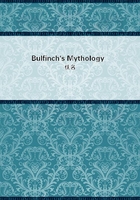
第59章
Antaeus, the son of Terra (the Earth) was a mighty giant and wrestler, whose strength was invincible so long as he remained in contact with his mother Earth. He compelled all strangers who came to his country to wrestle with him, on condition that if conquered (as they all were), they should be put to death.
Hercules encountered him, and finding that it was of no avail to throw him, for he always rose with renewed strength from every fall, he lifted him up from the earth and strangled him in the air.
Cacus was a huge giant, who inhabited a cave on Mount Aventine (one of the seven hills of Rome), and plundered the surrounding country. When Hercules was driving home the oxen of Geryon, Cacus stole part of the cattle, while the hero slept. That their foot-prints might not serve to show where they had been driven, he dragged them backward by their tails to his cave; so their tracks all seemed to show that they had gone in the opposite direction. Hercules was deceived by this stratagem, and would have failed to find his oxen, if it had not happened that in driving the remainder of the herd past the cave where the stolen ones were concealed, those within began to low, and were thus discovered. Cacus was slain by Hercules.
The last exploit we shall record was bringing Cerberus from the lower world. Hercules descended into Hades, accompanied by Mercury and Minerva. He obtained permission from Pluto to carry Cerberus to the upper air, provided he could do it without the use of weapons; and in spite of the monster's struggling he seized him, held him fast, and carried him to Eurystheus, and afterwards brought him back again. When he was in Hades he obtained the liberty of Theseus, his admirer and imitator, who had been detained a prisoner there for an unsuccessful attempt to carry off Proserpine.
Hercules in a fit of madness killed his friend Iphitus and was condemned for this offence to become the slave of Queen Omphale for three years. While in this service the hero's nature seemed changed. He lived effeminately, wearing at times the dress of a woman, and spinning wool with the handmaidens of Omphale, while the queen wore his lion's skin. When this service was ended he married Dejanira and lived in peace with her three years. On one occasion as he was travelling with his wife, they came to a river, across which the Centaur Nessus carried travellers for a stated fee. Hercules himself forded the river, but gave Dejanira to Nessus to be carried across. Nessus attempted to run away with her, but Hercules heard her cries, and shot an arrow into the heart of Nessus. The dying Centaur told Dejanira to take a portion of his blood and keep it, as it might be used as a charm to preserve the love of her husband.